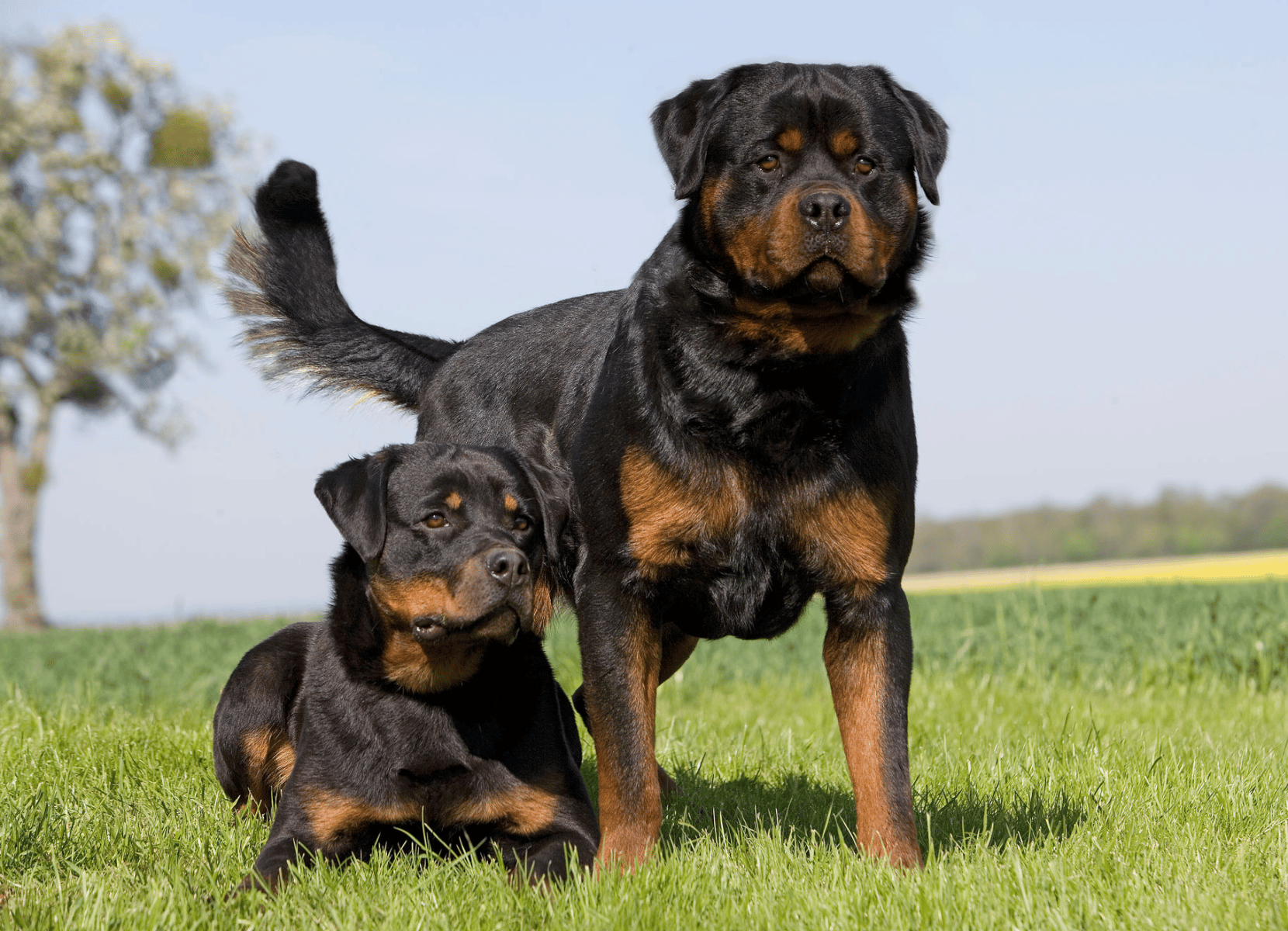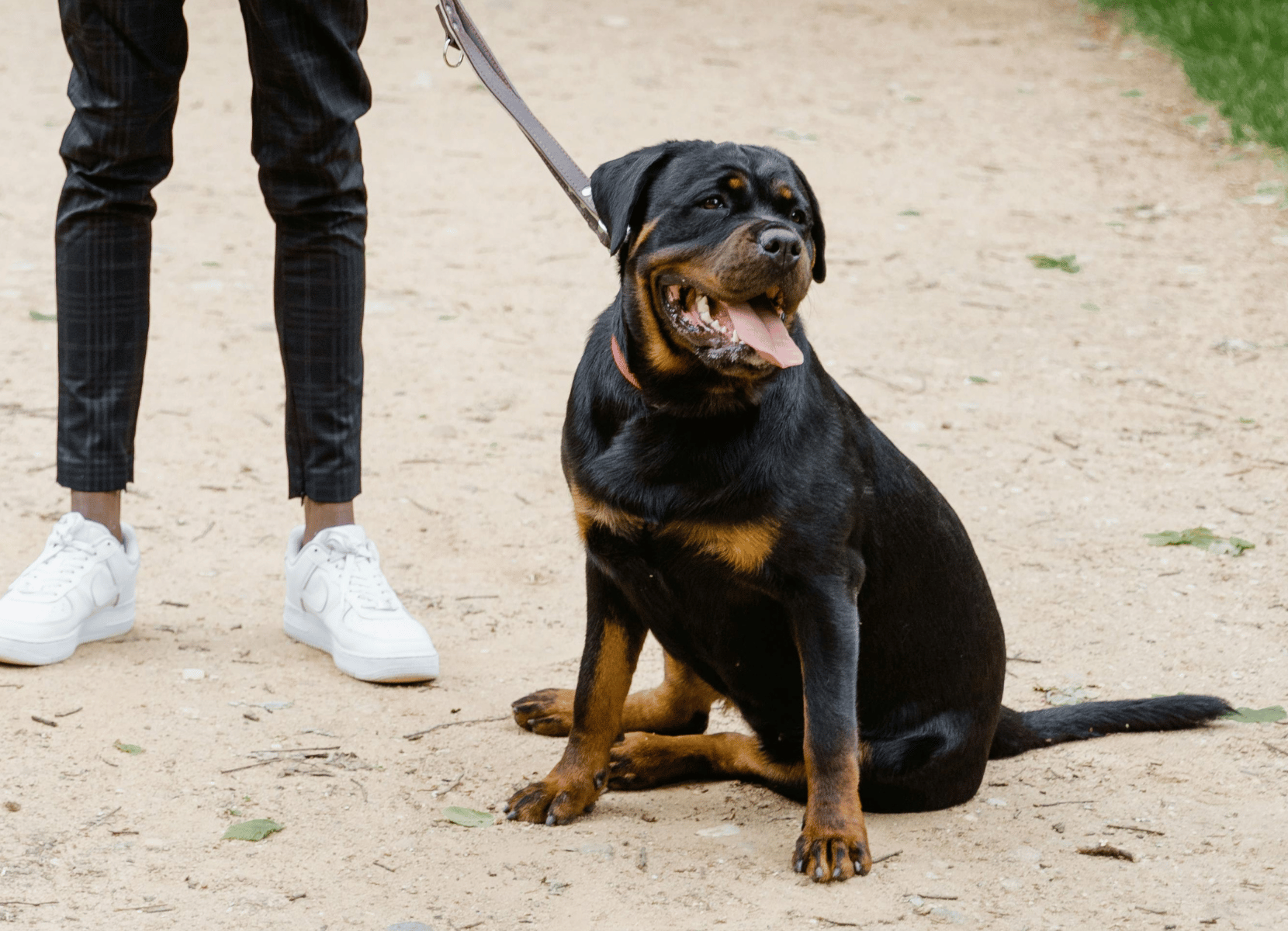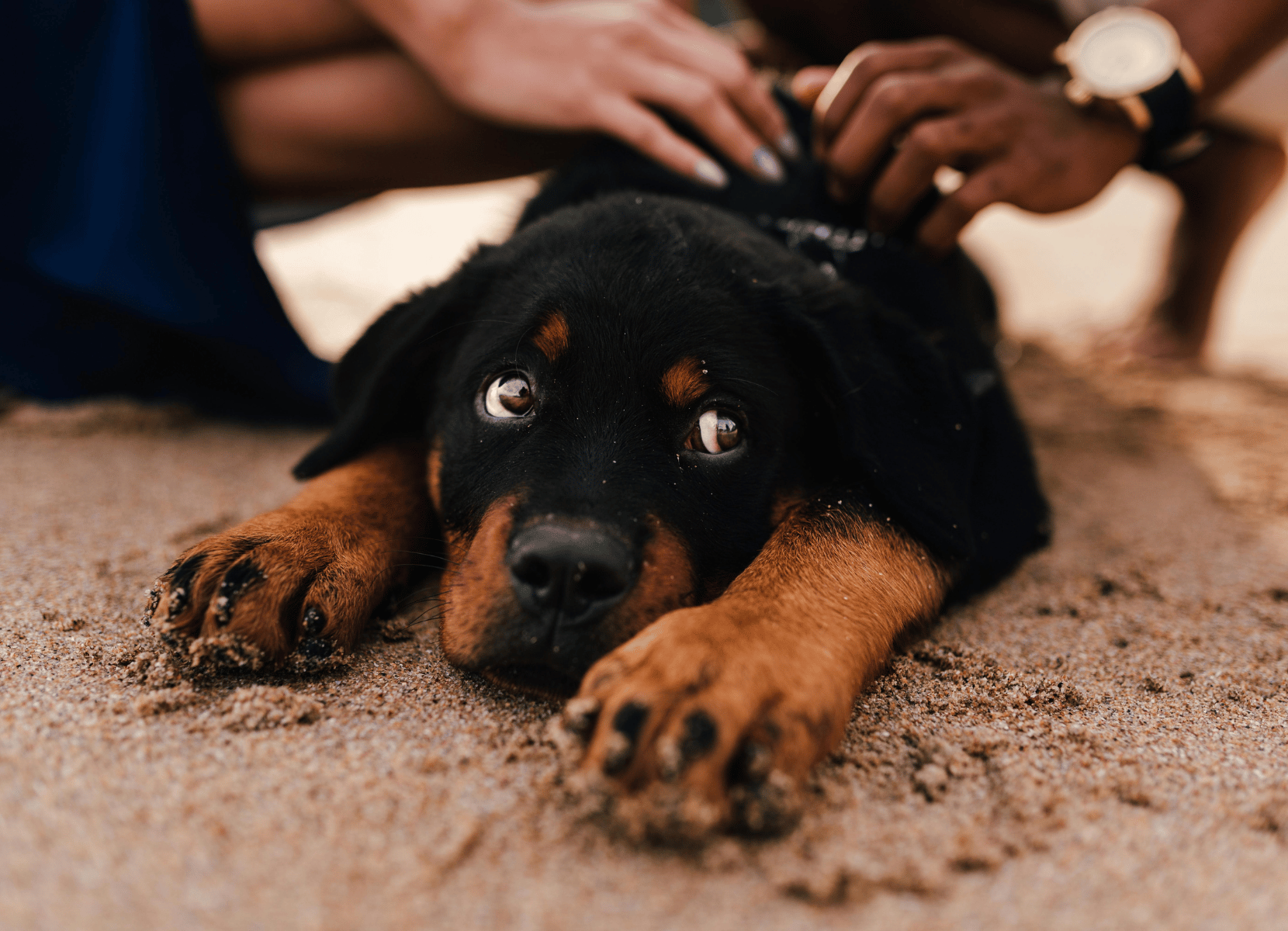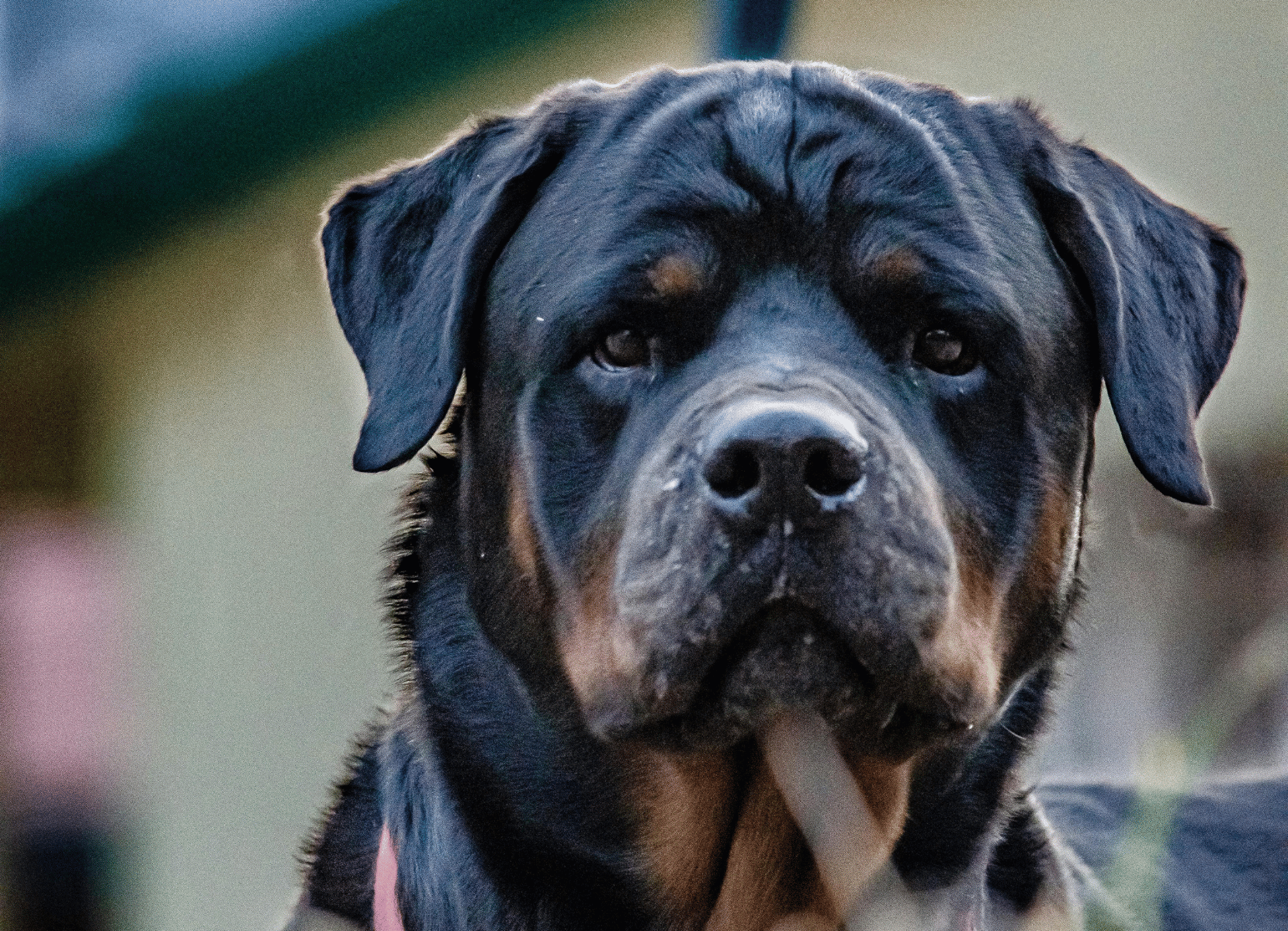Dog Breed
Rottweiler
Freindliness
Exercise Needs
Health Issues
Barking Tendencies
Grooming Needs
Shedding Level


Courageous companion
With a powerful build, sharp guarding instincts and a strong sense of loyalty, the Rottweiler has gained a reputation as a tough and burly breed. But with proper socialisation and care, these dogs make loving family members, and have grown in popularity. They’ve also found new roles as guide and therapy dogs, further demonstrating that the Rottweiler is indeed a gentle giant.
A well-bred Rottweiler is a calm, courageous and confident dog, with an aloof attitude that may be off-putting to strangers. To their trusted human family members, this pup may be a silly clown, eager to play while ready to protect.
Caring for your Rottweiler
Nutrition
Choosing the right food
Every dog is unique. From the small, flat-faced Pug to the obesity-prone Labrador Retriever. ROYAL CANIN® Breed Health Nutrition is tailor-made to address the unique needs of pure breed dogs. These breed specific formulas benefit from the latest ROYAL CANIN® research on the selection of the best protein sources, unique nutrients and tailor-made kibbles.

Exercising your dog
Rottweilers are moderately active dogs. At least 30 minutes of exercise, whether brisk walking, running or a game of fetch, is recommended for healthy adult dogs.
Some Rottweilers love water, and swimming is an excellent low-impact exercise. Rottweiler puppies are not good jogging partners. They should be fully grown (about 15 months old) before engaging in vigorous exercise to allow their bones and joints to grow normally.
Chewing is an important mental exercise that can be supported by giving your Rottweiler chew toys, which promote healthy chewing and mental stimulation. Invest in a good quality harness and lead such as these from the Ezydog range.

Training your Rottweiler
Once you have won your pup’s trust, and your Rottweiler figures out that training is fun, they’ll be an eager pupil who excels at a variety of canine activities.
Early obedience training is ideal,with positive reinforcement techniques working exceptionally well. Chew-toy rewards are a hit with Rottweilers—just be sure they can stand up to the dog’s powerful jaws! Toys for extreme chewers may need to be considered.
Naturally reserved in new situations, early socialisation helps better prepare these dogs to feel comfortable around strangers.
Rottweilers can make a steadfast companion to potential pet parents who properly train and socialise their pup.

Your dog's health
By recognising health problems in Rottweilers early you can seek advice and treatment from a veterinarian.
Reduce the risk of health problems by purchasing a puppy from a responsible breeder. Always inspect breeding facilities and breeding dogs, and never buy from a distant online seller.
Health Issues to watch out for:
Joint Dysplasia
Aortic Stenosis
Ectropion
Entropion
Anterior Cruciate Ligament (ACL) Problems

Grooming your dog
Do Rottweilers shed? Rottweilers have a double coat and are moderate year-round shedders, with heavier shedding taking place in autumn and spring.
To reduce shedding, brush your Rottie once or twice each week, and daily when they are losing their undercoat. Using a deshedding tool or rake can reduce shedding.
Bathing a Rottweiler is not recommended more than once a month, and shaving a Rottweiler is not recommended at all.
However regular nail trimming and brushing of teeth is important.
Key characteristics of Rottweilers


Rottweiler FAQs
Rottweilers are strong, loyal, and surprisingly affectionate companions. Whether you're considering one or already sharing life with a Rottie, these FAQs cover common questions not fully explored in the main breed guide. Topics include apartment living, social behaviour, travel, and home safety.
Are Rottweilers good family dogs?
Yes, Rottweilers can make loyal and loving family companions. When properly socialised and trained from a young age, they are gentle with children and deeply bonded with their human pack. Supervision is always recommended with younger kids due to the Rottweiler's size and strength.
Can Rottweilers live in an apartment?
Rottweilers can adapt to apartment living if their exercise and mental stimulation needs are met. Daily walks, interactive toys, and training sessions are essential to prevent boredom and unwanted behaviours in smaller living spaces.
Do Rottweilers get along with other dogs?
Rottweilers can get along with other dogs, especially if socialised early. Their strong guarding instincts may lead to territorial behaviour, so introductions should be calm and structured, particularly with same-sex dogs.
How can I make my home safe for a Rottweiler puppy?
Rottweiler puppies are curious and strong chewers. Puppy-proof your home by securing cords, removing choking hazards, and using gates or pens. Provide durable chew toys and designate safe zones for rest and play.
Yes, Rottweilers can be great car companions when trained from a young age. Use a crash-tested harness or a secure crate in the vehicle, and avoid overheating by providing airflow and breaks on long trips.
These FAQs offer practical insights for life with a Rottweiler. With the right care, early training, and a thoughtful environment, Rottweilers become confident and devoted companions who bring security, fun, and unconditional loyalty to their families.





